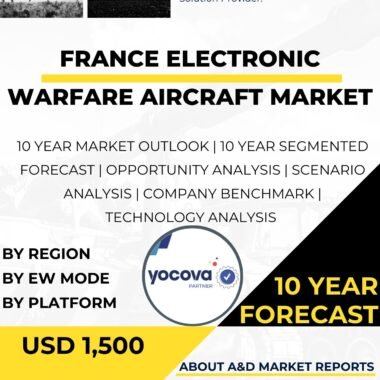Description
Brazil’s Prosub Program and Underwater Communication Enhancements
Brazil underwater communication market is significantly advanced by the Submarine Development Program (Prosub), which integrates sophisticated acoustic systems to enhance naval operations and maritime resource exploration. This initiative, centered on local innovation and strategic partnerships, strengthens Brazil’s maritime domain awareness and supports its defense industry growth.
Prosub’s Acoustic Communication Integration
The Prosub program, encompassing four Scorpène-class submarines and the nuclear-powered Álvaro Alberto, incorporates advanced underwater communication systems for secure data transmission. These systems, developed with Naval Group’s technology transfer, use low-frequency acoustic modems to enable real-time communication between submarines, surface ships, and command centers. Tested in 2025 at Itaguaí’s naval complex, they ensure reliable links for the Riachuelo-class fleet, supporting anti-submarine warfare and maritime surveillance across Brazil’s 7,491-km coastline.
Indigenous Development and SIATT’s Role
SIATT, formerly Mectron, leads Brazil’s efforts in developing indigenous underwater communication solutions, focusing on acoustic transceivers for unmanned underwater vehicles (UUVs) and sensors. These systems, designed for compatibility with Prosub’s SUBTICS combat suite, support ISR missions and offshore asset protection in the Santos Basin. Local production at SIATT’s São José dos Campos facility achieves 60% indigenous content, fostering job creation and reducing reliance on foreign suppliers, aligning with Brazil’s self-reliance goals.
Applications in Defense and Exploration
Prosub’s communication systems enable secure data exchange for submarine operations, enhancing coordination during IBSAMAR exercises with South Africa and India. They also support civilian applications, such as transmitting seismic data from underwater sensors for oil exploration and environmental monitoring in the Amazon Basin. These capabilities improve maritime domain awareness, critical for countering illegal fishing and trafficking in Brazil’s exclusive economic zone.
Strategic and Economic Impact
Partnerships with Naval Group and Thales provide technology transfers, training over 300 Brazilian engineers and boosting the underwater communication market, projected to grow at a 6% CAGR through 2032. Potential exports to regional allies like Chile enhance Brazil’s influence in Latin American maritime security, while supporting economic growth through high-tech job creation.
In summary, Prosub’s integration of advanced underwater communication systems strengthens Brazil’s naval capabilities and resource exploration. By prioritizing indigenous development and international collaboration, Brazil positions itself as a leader in Latin America’s underwater technology market, addressing diverse maritime challenges.




